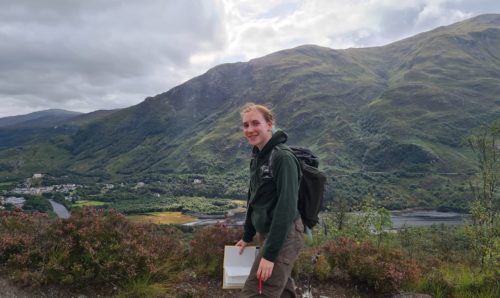A New Look at an Old World: GCSE in Natural History
Meet the Department Research and impact 2nd August 2021
Our Department of Earth and Environmental Sciences Chair of Natural History, Professor Phil Manning, has begun working with The Oxford Cambridge RSE Examination Board (OCR) to develop an exciting new GCSE in Natural History.

The Course
The new qualification aims to analyse the diverse ways in which the natural world has adapted to the forces that combine to shape the Earth’s long history. It will have a focus on the tools of observation and inquiry invaluable to the study of Natural History. The proposed GCSE is a significant step towards encouraging a greater awareness and understanding of our relationship with nature.
Phil Manning has said the following about the GCSE in Natural History:
“The proposed qualification would permit students across the UK to learn more about the world in which they live and also to better understand the often complex lexicon of language that accompanies the debate on sustainability. The proposed GCSE would help students begin to answer some of the many questions on Earth systems and the environmental challenges facing the planet in the 21st Century.”
Prof. Phil Manning is working with the OCR team to help deliver the new GCSE, the proposal of which is currently sat with the Schools Minister at the Department of Education, awaiting a final decision.
What will it offer?
As a decision is pending, attention has turned to asking what this GCSE would offer to pupils, teachers and academics.
The skills that this course offers pupils are broad, and applicable to a wide range of future study paths and careers. Alongside cartographic skills, the GCSE introduces pupils to the principles of observation that are key to scientific engagement. It also explores the latest methods of recording, manipulating and understanding data in an engaging context.
After two years of online or disrupted learning, the element of outdoor learning also excited those consulted by OCR. 96% of people agreed or strongly agreed that the GCSE would benefit from an element of outdoor study.
After a pandemic in which many have re-discovered their love for the natural world on their doorstep, Natural History offers a chance for teachers and pupils to deepen this connection. Outdoor study would provide practical experience of Britain’s geology, geography and environment today. The GCSE would also explore the wider context of this landscape’s history, and the forces that have shaped it over vast periods of time.
If you’re interested in reading more, read the following article based on a series of questions raised by teachers from across the UK. These had a focus on the views and work that Prof. Manning undertakes in the Department of Earth Sciences at the University of Manchester.




Leave a Reply